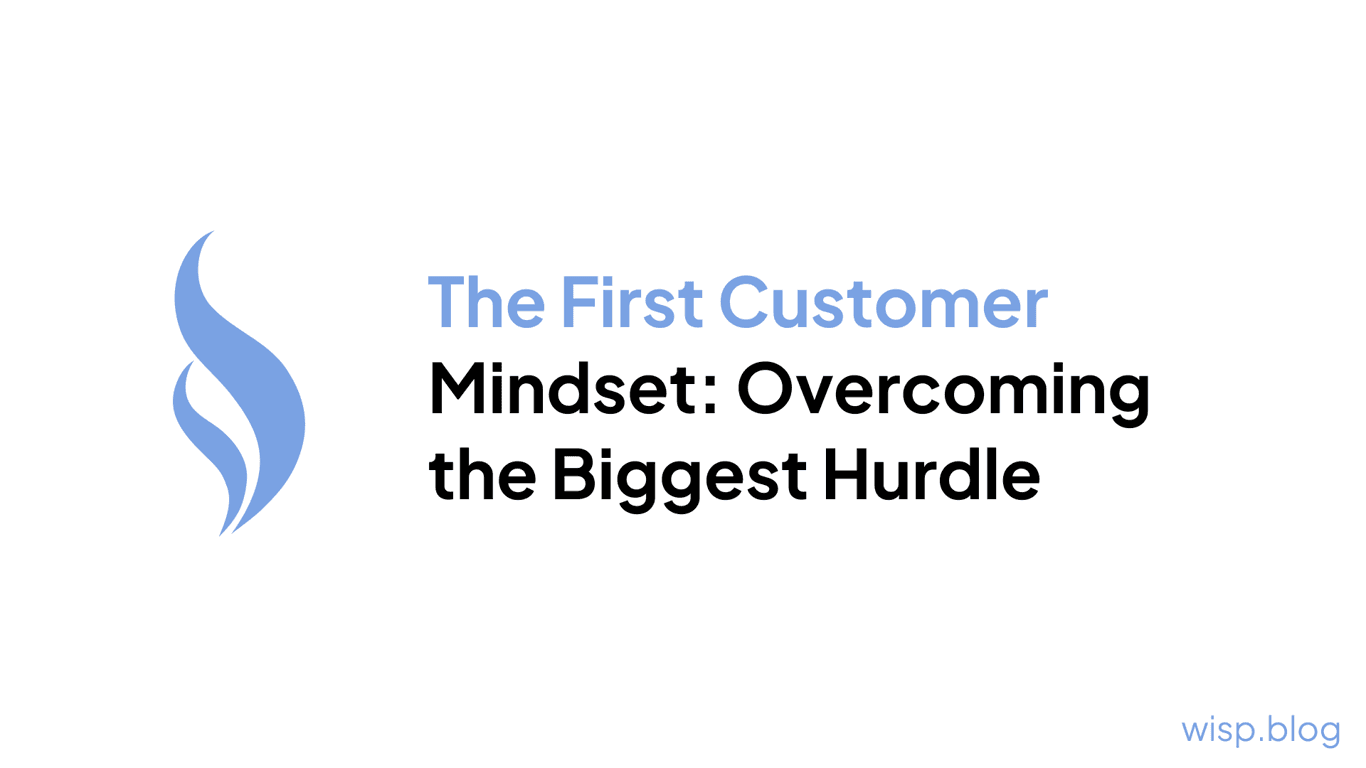
You're sitting there, staring at your calendar. Another sales call coming up in 15 minutes, and that familiar knot in your stomach starts to form. As a founder, you know your product inside and out, you believe in its value, but somehow, when it comes to these calls, the pressure to perform feels overwhelming.
"I'm worried my lack of sales skills is holding us back," you think to yourself, echoing a sentiment shared by countless founders in the same position. The truth is, traditional sales techniques often feel inauthentic, especially in the early stages when you're still figuring things out.
But what if there was a different approach? What if, instead of focusing on selling, you focused on being genuinely curious?
The Power of Curiosity in Early-Stage Sales
When you're in the early stages of your startup, there's often not much to "sell" in the traditional sense. Your product might still be in development, your feature set limited, and your case studies non-existent. This is exactly why the conventional "always be closing" mentality can feel so uncomfortable.
Here's where curiosity becomes your secret weapon. As one experienced founder puts it, "Sales as a founder is understanding their 'why' behind booking the call." This simple shift in perspective – from selling to understanding – can transform your entire approach to sales conversations.
Why Traditional Sales Approaches Often Fail Founders
Many founders struggle with common sales challenges:
Managing the flow of conversation while taking notes
Handling unexpected objections without immediate answers
Communicating product value effectively
Maintaining natural dialogue while following a sales structure
These challenges often stem from one fundamental misconception: that sales calls are about convincing someone to buy something. In reality, the most effective sales conversations, especially for founders, are about discovery and mutual understanding.
As Chris Voss, former FBI hostage negotiator and author of "Never Split the Difference," explains, the key to successful negotiation isn't in pushing your agenda – it's in understanding the other person's perspective so deeply that they talk themselves into your solution.
The Chris Voss Approach to Curious Conversations
Let's dive into specific techniques from "Never Split the Difference" that can transform your sales calls from awkward pitching sessions into engaging conversations:
1. Tactical Empathy
Instead of jumping straight into your product features, start by acknowledging your prospect's situation. For example, if they mention budget constraints, you might say, "It sounds like you're working with tight financial parameters right now." This shows you're listening and understanding their perspective.
2. Mirroring
This simple but powerful technique involves repeating the last few words of what someone has said, with an upward inflection (making it a question). For example:
Prospect: "We've tried similar solutions before, but they were too complicated." You: "Too complicated?"
This natural prompt often leads people to elaborate further, providing valuable insights into their experiences and needs. When faced with simple yes/no responses, follow up with inviting statements like "Tell me more about that" or "Help me understand what you mean."
3. Calibrated Questions
Instead of asking "why" questions that can make people defensive, use "how" and "what" questions to encourage open dialogue:
"What makes this a priority for you right now?"
"How would this impact your team's daily operations?"
"What would need to happen for this to be successful in your organization?"
These questions demonstrate genuine curiosity while gathering crucial information about your prospect's needs and decision-making process.
Practical Implementation: Turning Curiosity into Conversations
Before the Call
Set the Right Mindset Remember: "If you are asking questions for 5 minutes, you are dumb for 5 minutes, if you are never asking, you stay an idiot for the rest of your life." Embrace the learning opportunity each call presents.
Prepare Your Structure
Have a clear outline but hold it loosely
Prepare responses to common objections
Create a list of curious questions relevant to your prospect's industry
During the Call
Build Initial Rapport (First 60 Seconds) Start with genuine small talk. As shared in founder communities, "Talk at least 60 seconds before you get to business." This creates a comfortable atmosphere for open dialogue.
Listen to Understand, Not to Respond One of the most common pieces of advice from successful salespeople is "Listen to understand not to respond." This means:
Taking thorough notes
Focusing fully on what's being said
Resisting the urge to jump in with solutions
Use Curiosity-Driven Techniques
Mirror key phrases to encourage elaboration
Apply tactical empathy to build trust
Ask calibrated questions to deepen understanding
Use labels to acknowledge emotions and concerns
Handle Objections with Curiosity Instead of defending or countering objections, get curious about them:
"That's interesting, could you help me understand what makes you say that?"
"What aspects of this concern you the most?"
"How have you handled this challenge in the past?"
The Long-Term Benefits of Curiosity-Driven Sales
Adopting a curiosity-driven approach to sales calls doesn't just make the process more comfortable – it creates lasting benefits for your business:
Better Product-Market Fit Every conversation becomes a valuable source of market research. The insights you gain can directly influence your product development and positioning.
Stronger Customer Relationships As one founder notes, "People are not buying your product. They are buying you." When prospects feel truly understood, they're more likely to become long-term partners.
Improved Sales Skills The more you practice curious questioning, the more natural sales conversations become. You'll find yourself handling objections more smoothly and understanding customer needs more deeply.
Faster Deal Closure Remember, "Time kills all deals." By understanding your prospects' true needs and concerns early, you can move deals forward more effectively.
Conclusion: Embrace the Power of Not Knowing
The pressure to perform on sales calls often comes from feeling like we need to have all the answers. But the real power lies in admitting what we don't know and being genuinely curious about finding out.
As you prepare for your next sales call, remember that your goal isn't to convince someone to buy – it's to understand them so well that the right solution becomes obvious to both parties. Let go of the outcome, embrace curiosity, and watch as your sales conversations transform from stressful pitches into engaging discussions that naturally lead to successful outcomes.
After all, as many successful founders have discovered, every "no" leads to the eventual "yes" – especially when you're curious enough to understand why.
Want to dive deeper into negotiation techniques? Check out Chris Voss's "Never Split the Difference" for more insights on using curiosity and tactical empathy in your conversations.


